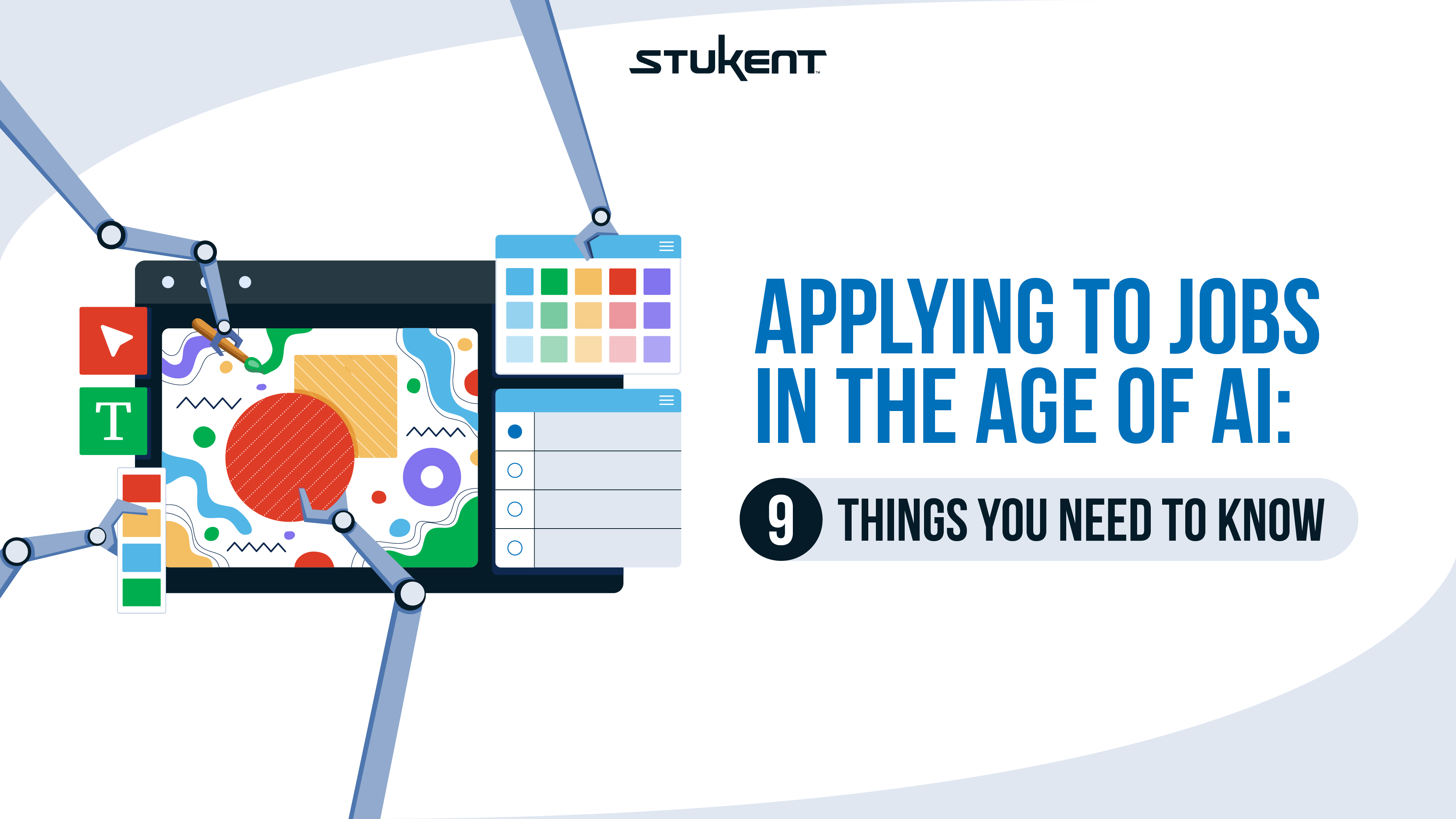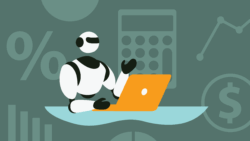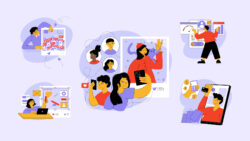In today’s job market, artificial intelligence has dramatically transformed traditional job-hunting methods. Unlike the days when penning an error-free, professionally formatted resume and cover letter could distinguish you, the modern job market now calls for new strategies. To land that first job, recent graduates must understand the evolving dynamics of today’s hiring processes.
To help you navigate this unfamiliar landscape, we’ve gathered insights from nine industry professionals, including hiring experts, CEOs, and entrepreneurs. From mastering ATS and keywords strategy to optimizing your CV to pass AI filters, these experts share their top tips for staying ahead in the job search game.
Here are nine ways AI impacts the job market:
- ATS and Keywords Strategy
- AI-generated Resumes and Cover Letters
- Diverse AI Applications for Job Searching
- Bias in Job Applications
- Optimized CV for AI Screening
- Chatbots for Initial Candidate Contact
- Chance to Shine Among AI-generated Applications
- AI Usage in Job Assessments and AI Checkers
- Enhanced Communication and Hiring Process
1. ATS and Keywords Strategy
One of the most common AI tools used by hiring teams is an Applicant Tracking System (ATS). As a recent graduate who may not have much job experience, you should definitely become familiar with its particular functions.
To bolster your chances of securing a job, it is essential to identify 10 keywords from the job posting that match your skills and qualifications. These keywords should include both soft skills, such as attention to detail and analytical thinking, and hard skills, like copywriting and proficiency in CRM systems.
Think about the knowledge and skills you gained at your university, as well as your biggest strengths. Then list them in a way that draws attention — for example, by using bullet points. It’s crucial to give your abilities great visibility.
As soon as you realize AI’s potential and adhere to its logic, you will position yourself ahead of the competition.
Martyna Szcześniak, Community Expert, My Perfect Resume
2. AI-generated Resumes and Cover Letters
As a recent college graduate applying for your first role, one thing to know about AI’s impact on the job search process is that it can be used not only to filter applications, but also to create them.
For example, tools like Avature can generate unique resumes and cover letters for each job opening based on the skill set of a particular individual, saving precious time and energy when submitting multiple applications.
This automation allows employers to identify qualified candidates quickly while giving applicants an advantage by showing off a tailored resume catered specifically to the desired job opportunity. However, job seekers should still review and edit the text and ensure its quality before hitting the submit button.
Grace He, People & Culture Director, TeamBuilding.com
3. Diverse AI Applications for Job Searching
AI is used in ranking and relevance, recommendations, and ad pricing. It can also help employers examine resumes, analyze applications, and calculate wage ranges.
Well-trained algorithms for recommendation lead to more people getting jobs, relevance classifiers detect deceptive or low-quality jobs, and application evaluation systems help the most qualified candidates stand out from a large number of applicants.
Recruiters may quickly notify candidates of their selection or rejection using AI. Unlike manual processes, creating a communication template for each stage is a one-time effort that can be reused.
Aleksandar Ginovski, Career Expert, Resume Expert, & Product Manager, Enhancv
4. Bias in Job Applications
Many companies use automated systems to screen and filter job applications, which can lead to unintentional bias. For example, if an AI system is trained on data that includes a disproportionate number of male candidates, it might associate certain skills with men, leading to gender bias.
Minimize the risk of getting rejected for reasons unrelated to your abilities by removing personal information. Leave out information such as age, gender, race, religion, and other factors that aren’t related to your qualifications.
Check your privacy settings on social media — AI can scan candidates’ social media profiles, so only make information public if you’re okay with it being seen by a potential employer.
Eva Chan, CPRW & Senior Content Specialist, Resume Genius
5. Optimized CV for AI Screening
As a recent graduate stepping into the job market, it’s important for you to understand the increasing role of AI in the recruitment process. Most companies now use AI-based tools for initial CV screening to filter out suitable candidates.
You need to optimize your CV for this. For example, include relevant keywords from the job description and avoid fancy formatting or graphics, which can confuse AI tools.
In my personal experience, I found that a simple, clear layout with standard headings such as “Education,” “Experience,” and “Skills” worked best. It may feel less personal, but it can increase your chances of making it past the initial AI screening and getting your CV in front of a human recruiter.
Hafsa Unnar, Executive Assistant, Onsite First Aid Training
6. Chatbots for Initial Candidate Contact
Many businesses are now using chatbots for initial candidate contact, including meeting scheduling, prescreening, and more. If you run into these chatbot screeners, remember to keep your answers clear and succinct so you aren’t unfairly tossed from the list of viable candidates by a bot that doesn’t understand implicit language or statements.
Fortunately, you’ll typically only be asked quantitative questions by a chatbot, so that will make it easier to answer clearly. Double-check your messages for spelling errors and try to use some of the same terminology from the job posting. Much like ATS and resume-screening software, chatbots may look to pick up some of those words as precise indicators of a relevant fit.
Jeffrey Zhou, Cofounder and CEO, Fig Loans
7. Chance to Shine Among AI-generated Applications
To any recent graduate nervous about the impact of AI on the job search, I say: Consider it your chance to shine.
As a recruiter, I see an influx of robotic and vague cover letters that can largely be attributed to apps like ChatGPT. Thanks to this, candidates who aren’t afraid to reveal their passion and uniqueness catch my eye more than before. Don’t be scared to be creative when formatting your introduction or resume.
The overly formal language now feels more mechanical than simply polite, so ditch the stiff diction and opt for a conversational tone instead. Highlight your interest in the industry and give me content that shows your dedication to the position.
Linn Atiyeh, CEO, Bemana
8. AI Usage in Job Assessments and AI Checkers
If you’re hunting for a new job, it’s normal to feel overwhelmed and unsure of your position in the current market. From an employer’s perspective, I found that a lot of candidates are using ChatGPT to create very generic cover letters that tell me nothing about the candidate.
To make matters worse, they use AI to generate their pre-hire assessments, not understanding that most companies have AI checkers already in place to prevent hiring people who use AI heavily.
My best tip is to avoid using AI for any of these situations (unless your future employer explicitly tells you to do so) so you can differentiate yourself from the sea of unqualified candidates. Anyone can use AI, but not everyone has the skills for the job. Stand out.
Gordana Sretenovic, Cofounder, Workello
9. Enhanced Communication and Hiring Process
AI is greatly affecting the job search and connectivity of recruiters and applicants. Recruiters are using AI to enhance the relationship between job candidates and the company, such as through text message reminders about upcoming interviews or a chatbot that answers applicants’ questions.
To strengthen the bond with potential recruits, talent acquisition teams also boost interaction by enhancing communication quality and regularity. When employers frequently communicate with their candidates, it ensures the candidates feel valued and informed, resulting in a more pleasant hiring process.
Alan Senejani, Cofounder and Digital Marketing Director, LVL Music Academy
Takeaways
While AI has dramatically changed the job market, it doesn’t render the human elements obsolete. AI is a tool, not a replacement, for your unique story, education, and experience. Authenticity will always be a critical component of a standout application, so don’t hesitate to let your individuality shine through. We wish you the best of luck with your job search!
At Stukent™, we’re here to help educators help students help the world. To learn more about our first-in-the-world Simternships™ and courseware, or to get FREE instructor access to our products, visit our website.






